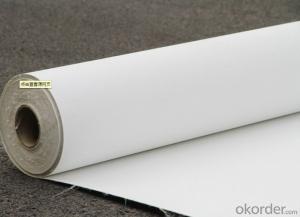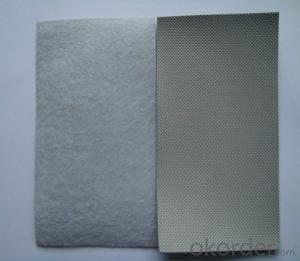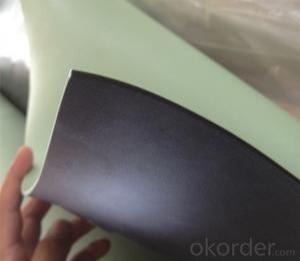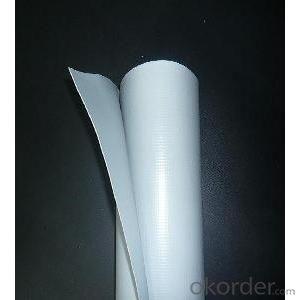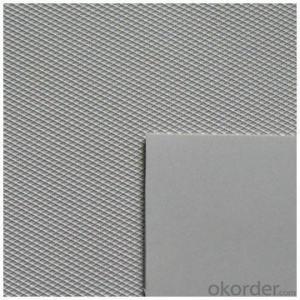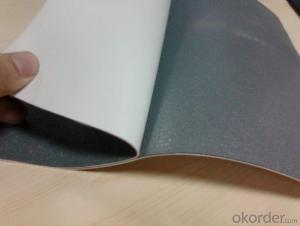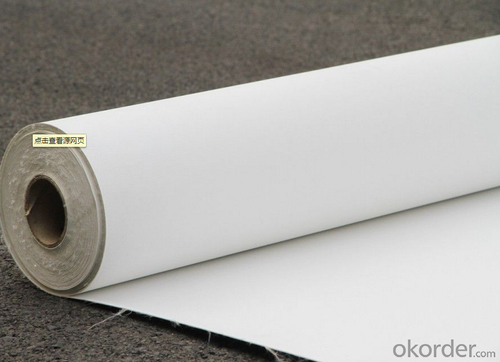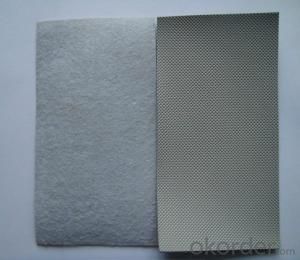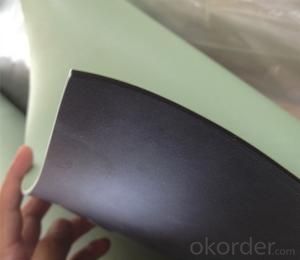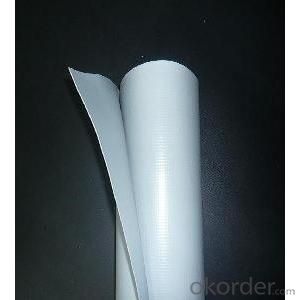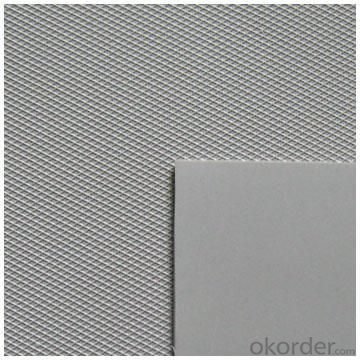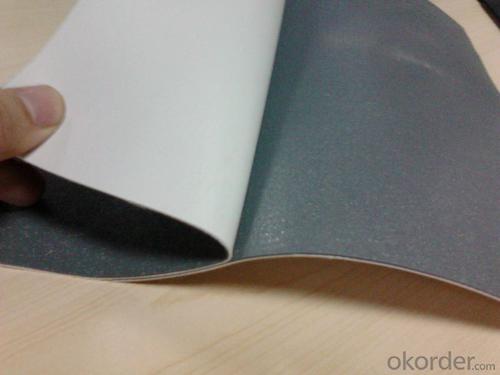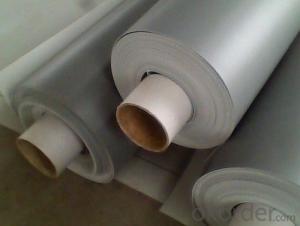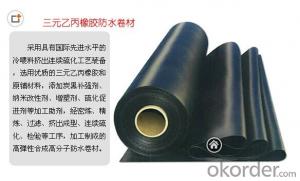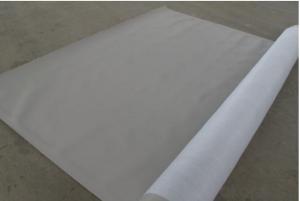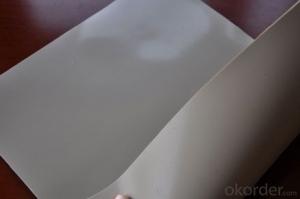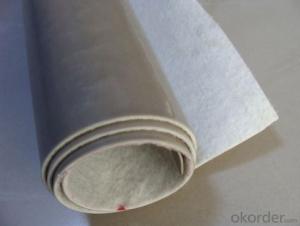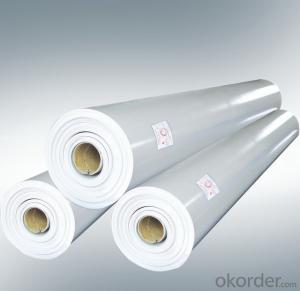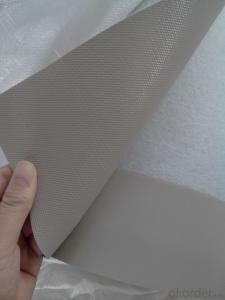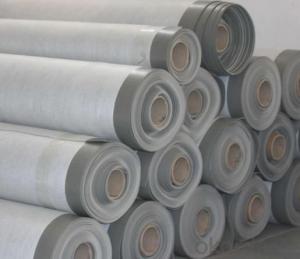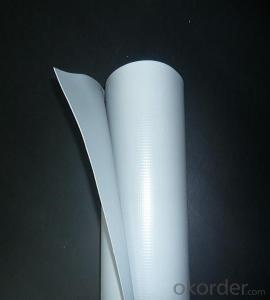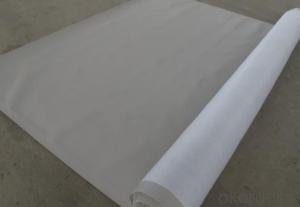PVC Waterproofing Membrane Reinforced Polyvinyl Chloride
- Loading Port:
- Shanghai
- Payment Terms:
- TT OR LC
- Min Order Qty:
- 20000 m²
- Supply Capability:
- 5000000 m²/month
OKorder Service Pledge
OKorder Financial Service
You Might Also Like
PVC Waterproofing Membrane Reinforced Polyvinyl Chloride
Product Description of PVC Waterproofing Membrane Reinforced Polyvinyl Chloride:
PVC waterproofing membrane is an excellent high-quality polymer waterproof sheet, made of PVC resin by adding plasticizer, anti-UV agent, anti aging agent, and stabilizer and other processing aids through extrusion and molding. As the highly recommended product by the Ministry of Construction, it is featured by high tensile strength, great elongation, good stability, small shrinkage, low-temperature performances, good resistance to weathering and root
penetration, and long service life.
Features of PVC Waterproofing Membrane Reinforced Polyvinyl Chloride:
1.Long service life and weathering resistance; and the materials can be used for 30 years on the roof and 50 years underground.
2. High tensile strength, great elongation, and small size change during heat treatment.
3. Good low temperature flexibility and adaptability to environmental temperature changes.
4. Good resistance to root penetration. It can be made for green roofs.
5. Excellent resistance to puncture and impact.
6. Convenient for construction (can be welded), solid and reliable, and Eco-friendly.
7. Strong resistance to chemical corrosion, suitable for special occasions.
8. Good plasticity, convenient and quick corner detail treatment. Easy maintenance and low cost.
9.After 2,000 hours of manual weathering verification
Classification of PVC Waterproofing Membrane Reinforced Polyvinyl Chloride:
1. N: Homogeneous PVC membrane
2. L: PVC membrane with fabric backing
3. W: Reinforced PVC membrane
Advantage of PVC Waterproofing Membrane Reinforced Polyvinyl Chloride:
1.) Mixing automation. Apply automatic temperature control automatic time control and automatic feed control.
2.) Extrusion equipment uses twin screw coextrusion. Screw temperature uses computer automatic temperature control system.
3.) Handpiece uses large width didhead extrusion equipment.
4.) Sophisticated three-roller calender equipment. The space between equiment is controlled by automation system.
Technical Data of PVC Waterproofing Membrane Reinforced Polyvinyl Chloride:
No. | Item | Model Ⅱ | |
1 | Tensile Strength Mpa ≥ | 12.0 | |
2 | Elongation at break% ≥ | 250 | |
3 | Shrinkage rate % ≤ | 2.0 | |
4 | Flexibility at low temperature | No crackle at -25oC | |
5 | Water tightness | Watertight | |
6 | Puncture resistance | Watertight | |
7 | Heat aging treatment | Appearance | Free from bubble, crack, cohesion and void |
Change rate of tensile strength % | +20oC | ||
Change rate of elongation at break | |||
Flexibility at low temperature | No crack at -20oC | ||
8 | Chemical corrosion resistance | Change rate of tensile strength % | +20 |
Change rate of elongation at break | |||
Flexibility at low temperature | No crack at -20oC | ||
9 | Artificial weathering | Change rate of tensile strength % | +20 |
Change rate of elongation at break | |||
Flexibility at low temperature | No crack at -20oC | ||
Application of PVC Waterproofing Membrane Reinforced Polyvinyl Chloride:
1) All kinds of roofs, such as steel structure roof, planted roof etc.
2) Underground engineering, such as building basement, subways, tunnels, air raid shelter, etc.
3) Other projects like artificial lake, dam, water reservoir, grain storehouse, etc.
Images of PVC Waterproofing Membrane Reinforced Polyvinyl Chloride:
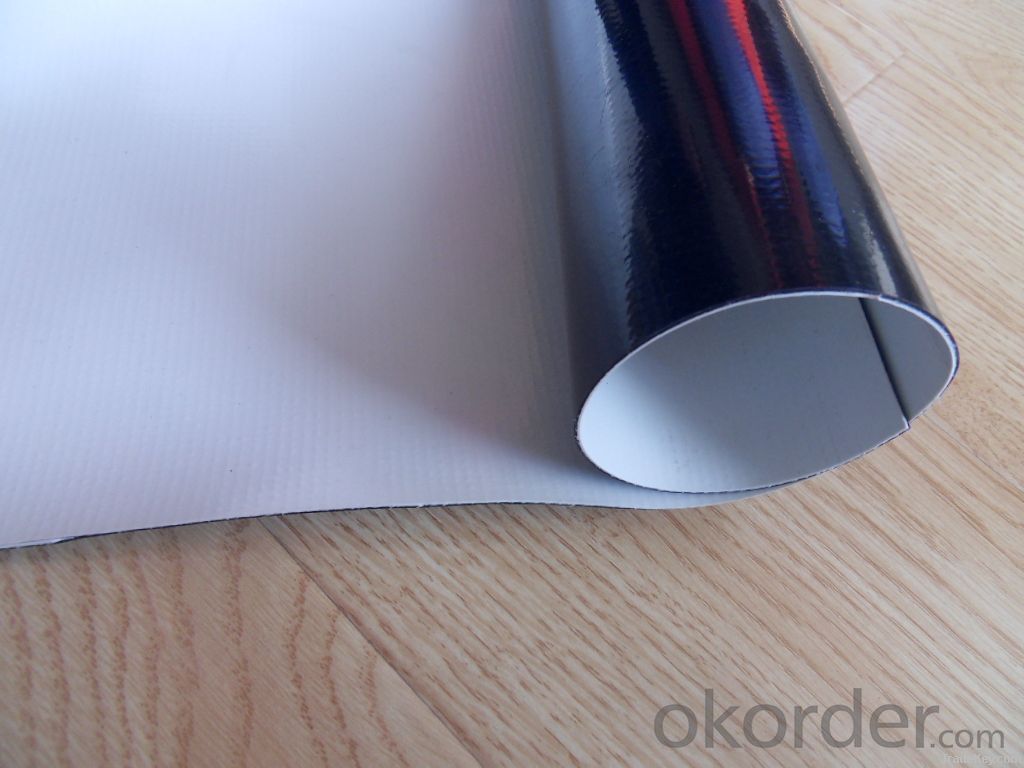
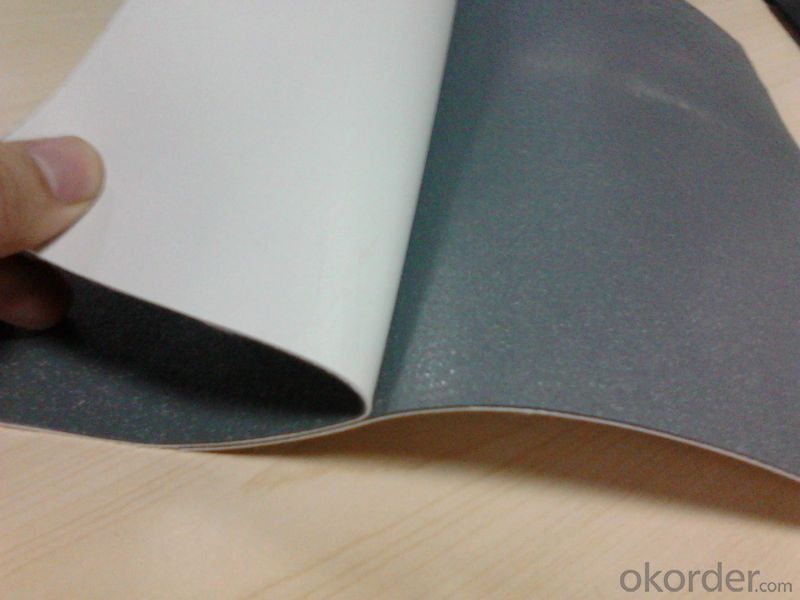
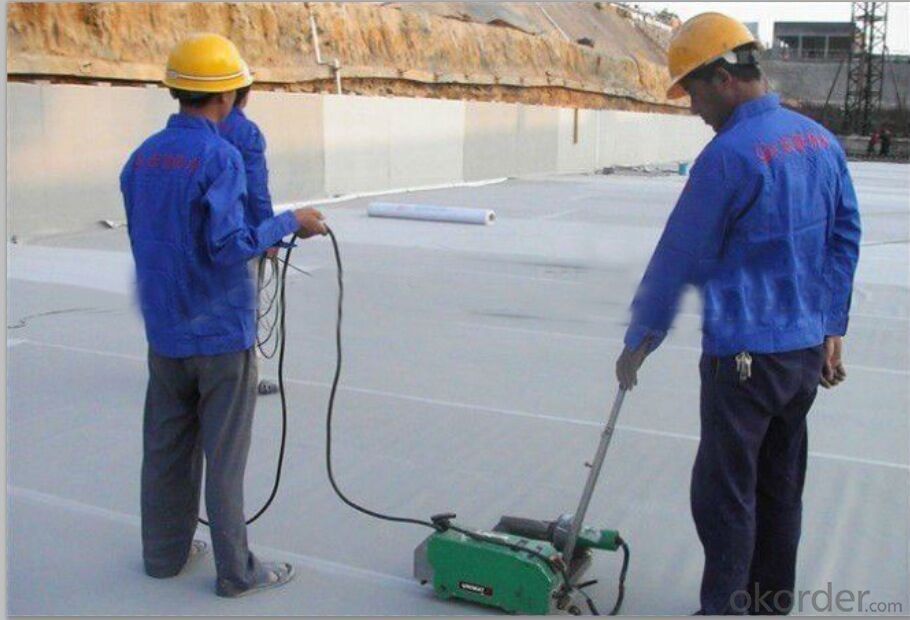
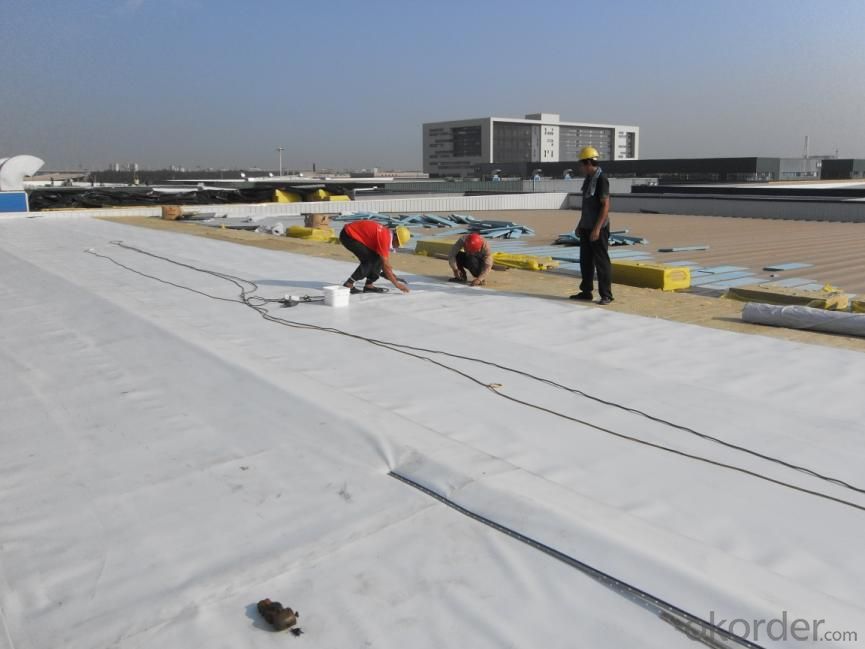
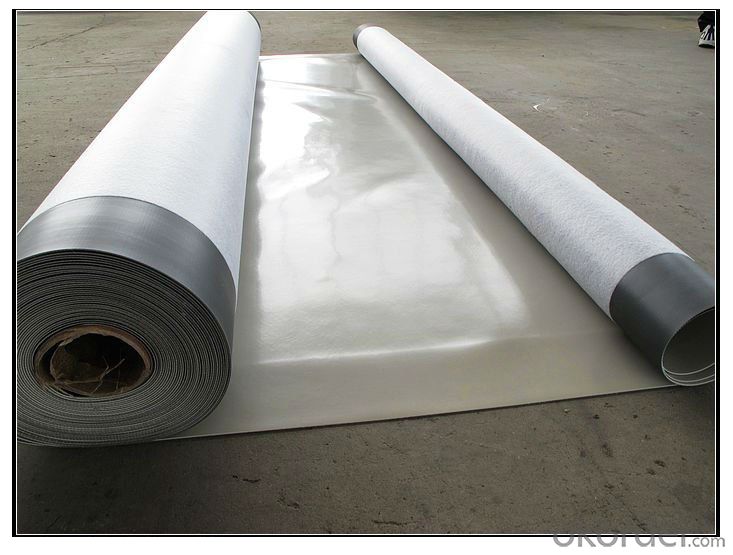
FAQ of PVC Waterproofing Membrane Reinforced Polyvinyl Chloride:
1. Can you produce 4m width?
Yes, no problem for us. We have four bases in China, largest one in this field.
2. How many quantity in one 20'' container for 1.2mm and 1.5mm?
480rolls, 11520m2 for 1.2mm and 400rolls, 9600m2 for 1.5mm
3. Can you provide free samples?
Yes, our samples are free, but express fees usually on buyer's account.
- Q: Can a waterproofing membrane be used for swimming pools or water features?
- Yes, a waterproofing membrane can be used for swimming pools or water features. Waterproofing membranes are specifically designed to prevent water leakage and are commonly used for various applications, including swimming pools and water features, to ensure they remain watertight and durable.
- Q: Are waterproofing membranes suitable for residential basements?
- Yes, waterproofing membranes are suitable for residential basements. These membranes are designed to prevent water infiltration and protect the basement against moisture damage. They create a barrier that keeps water out, helping to keep the basement dry and free from water-related issues like mold and water damage.
- Q: Can a waterproofing membrane be used in mining or excavation projects?
- Yes, a waterproofing membrane can be used in mining or excavation projects. Waterproofing membranes are designed to prevent the ingress of water and other liquids, making them an ideal solution for areas that are prone to water intrusion, such as mines or excavations. These membranes are typically made from durable materials, such as rubber or bitumen, and are applied to the walls, floors, or roofs of these structures to create a watertight barrier. By using a waterproofing membrane, mining and excavation projects can minimize the risk of water damage, protect equipment and infrastructure, and ensure a safe working environment for workers.
- Q: Can waterproofing membranes be used on concrete surfaces?
- Concrete surfaces can indeed benefit from the use of waterproofing membranes. These membranes are specifically designed to create a barrier against water penetration. They are often employed on concrete surfaces to safeguard them against water damage. Typically, these membranes are composed of rubber, PVC, or bitumen and can be applied to the concrete surface either in a liquid or sheet form. Once applied, the membrane forms a strong and continuous waterproof layer that effectively prevents water from seeping into the concrete. This proves to be particularly advantageous in areas that frequently come into contact with water, such as basements, bathrooms, or outdoor concrete structures. By preventing water-related issues such as cracking, spalling, or mold growth, waterproofing membranes effectively prolong the lifespan of concrete surfaces.
- Q: Is a waterproofing membrane resistant to punctures?
- Yes, a waterproofing membrane is generally designed to be resistant to punctures. It is engineered with durable materials and reinforced to provide protection against puncturing forces, ensuring its longevity and effectiveness in preventing water penetration.
- Q: Can a waterproofing membrane be used for a stadium?
- Yes, a waterproofing membrane can be used for a stadium. Waterproofing membranes are commonly used in construction projects to prevent water infiltration and protect structures from moisture damage. In the case of a stadium, a waterproofing membrane can be applied to the building's foundation, roof, or any other areas that are susceptible to water penetration. This will help ensure the longevity and structural integrity of the stadium by preventing water-related issues such as leaks, mold, and deterioration.
- Q: Is a waterproofing membrane resistant to saltwater or other corrosive substances?
- Yes, a waterproofing membrane is generally resistant to saltwater and other corrosive substances. Waterproofing membranes are designed to provide a barrier against moisture and water penetration, which includes protection against corrosive substances. These membranes are typically made from materials such as modified bitumen, PVC, EPDM, or TPO, which have inherent resistance to saltwater and other corrosive elements. Additionally, some manufacturers may also incorporate additional protective layers or coatings to enhance the membrane's resistance to corrosive substances. However, it is important to note that the level of resistance can vary depending on the specific type and quality of the waterproofing membrane used. Therefore, it is crucial to choose a high-quality membrane that is specifically designed for the intended application, such as saltwater environments or areas exposed to other corrosive substances.
- Q: Is the foundation pit waterproofing and the foundation pouring on the working face?
- 3, you say waterproof and pouring concrete conflict? Do not conflict
- Q: What is the difference between PET waterproofing membrane and BAC waterproofing membrane? What is the commonality? Is BAC a PET?
- BAC is not equal to PET, carcass material is not the same, and BAC also fiberglass tire coil.
- Q: How long does it take for a waterproofing membrane to cure or dry?
- The time it takes for a waterproofing membrane to cure or dry can vary depending on the specific product and environmental conditions. In general, most waterproofing membranes require at least 24 hours to cure and fully dry. However, it is important to note that this timeframe can be influenced by factors such as temperature, humidity, and the thickness of the applied membrane. Additionally, some products may have specific curing instructions provided by the manufacturer, so it is always recommended to follow the guidelines provided with the particular waterproofing membrane being used. Overall, allowing sufficient time for the membrane to cure and dry is crucial to ensure its proper functionality and effectiveness in providing long-lasting waterproofing protection.
Send your message to us
PVC Waterproofing Membrane Reinforced Polyvinyl Chloride
- Loading Port:
- Shanghai
- Payment Terms:
- TT OR LC
- Min Order Qty:
- 20000 m²
- Supply Capability:
- 5000000 m²/month
OKorder Service Pledge
OKorder Financial Service
Similar products
Hot products
Hot Searches
Related keywords
